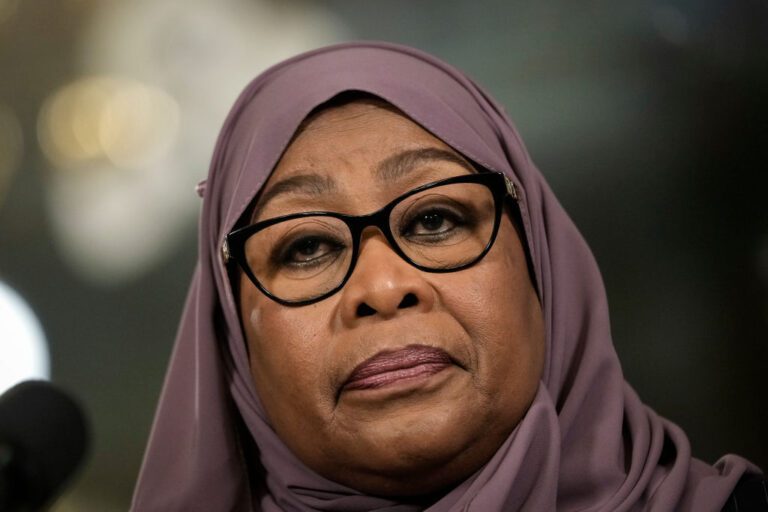Church groups have condemned gross human rights violations and deadly state violence in Tanzania, calling on authorities to end repression and protect fundamental freedoms in the wake of the disputed national election.
In a statement released by national and global church bodies, including the World Council of Churches (WCC), the Evangelical Lutheran Church of Tanzania (ELCT), and the Roman Catholic Bishops, Christian leaders said the killings, arrests and destruction that followed the October 29 protests marked an unprecedented moral and humanitarian crisis for the country. Human rights groups estimate thousands of people have been killed and hundreds captured, prompting calls for an immediate end to the use of live ammunition against civilians, the restoration of constitutional rights and an independent investigation into all casualties.
The presiding bishop of the Evangelical Lutheran Church of Tanzania, which has more than 6 million members, the Rev. Alex Gehads Marathusa, said the church was saddened and pained by the events that undermined the dignity, respect and human worth of people.
“Everyone remembers that day and the next day our country experienced a difficult situation unlike any we have seen in our history,” Marathusa said in a statement on November 12. “Riots broke out, resulting in loss of life, injuries, and destruction of public and private property. There is no sufficient reason to explain the loss of life and destruction of property.”
The Presiding Bishop expressed his condolences for the death of the Order and prayed for the disappearances and destruction of property. He joined other churches, including the Roman Catholic bishops, in condemning the violence and the government’s brutal response to the protests.
“The sanctity of human life, a gift from God, must always be upheld and no political process can justify the shedding of innocent blood,” said the Rev. Dr. Jerry Pillay, general secretary of the World Council of Churches, in response to reports that protesters were killed and some arrested on election day.
The WCC called on the Tanzanian government to immediately end all forms of violence and stop the use of live ammunition against unarmed civilians. Religious groups called for guarantees of protection of fundamental human rights, including freedom of expression, assembly, and association. It also called for an independent investigation into civilian casualties and for those responsible to be held accountable.
Professor Pillay expressed shock at the scale of violence and arbitrary human rights violations occurring in Tanzania.
“Reports of widespread protests, excessive use of force by security services, and scores of civilian casualties are deeply disturbing and call for urgent moral reflection and responsibility,” he said.
“We are deeply troubled by reports showing widespread repression, including mass arrests, threats, and restrictions on internet access, which further restricts civic space and silences voices of opposition,” it added.
No official death tolls or arrests have been reported, but human rights groups estimate that up to 3,000 people were killed by police, making it one of the deadliest incidents in the country’s recent history. More than 300 people, including minors, have been detained and charged with treason following the deadly protests.
The Tanzanian government’s decision to cut off internet access after contested opinion polls has made it nearly impossible to verify information on those detained or killed. President Samia Suluhu reportedly secured 98% of the vote in the controversial election.
African Union observers noted widespread fraud in the preparation for and during the election. The agency said in a preliminary report that election irregularities, including the detention of opposition leaders before voting, the disruption of voting procedures in some parts of the country, and internet shutdowns on election day, violate the principles of free and fair elections.
The WCC called on local governments to support Tanzania in its pursuit of truth, accountability and reconciliation through peaceful means. The organization offered to assist in this process through its Tanzanian branch, the Tanzania Christian Council.
“We affirm the role of the Christian Council of Tanzania (CCT) and other faith-based organizations, which continue to call for restraint, dialogue and reconciliation amid rising tensions. The prophetic mission of the Church is to stand with the oppressed, speak truth to those in power, and stand with people towards healing and restoration,” the WCC said.
Meanwhile, Pentecostal Voices of Kenya, a coalition of Kenyan Pentecostal leaders, has sounded the alarm about the targeting of Kenyans and the deteriorating security situation in Tanzania. The bishops criticized the Kenyan government for failing to adequately protect its citizens detained in Tanzania.
“We also call on foreign governments, especially those of our neighbors in East Africa, to abide by United Nations and regional human rights treaties and protocols, and to respect the fundamental rights and freedoms of Kenyans at home,” PVK Secretary-General Habil Olembo said in a press statement.
The exact number of Kenyans detained or killed remains unclear as the region’s political and religious leaders have remained largely silent on the issue.
